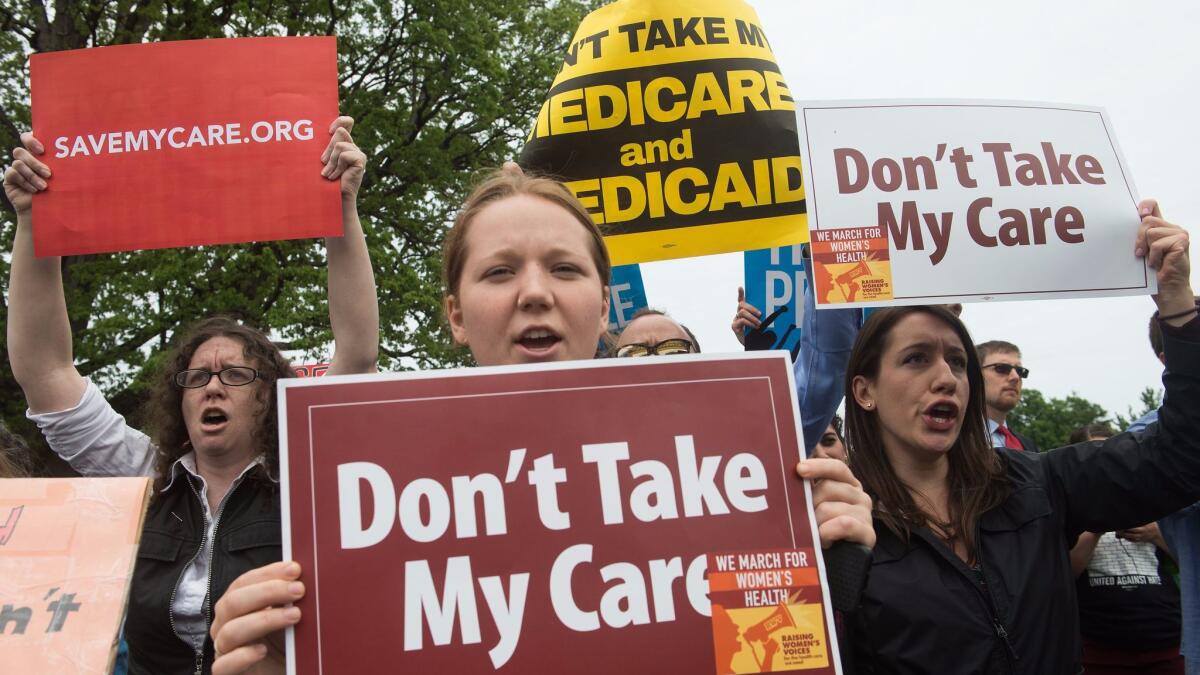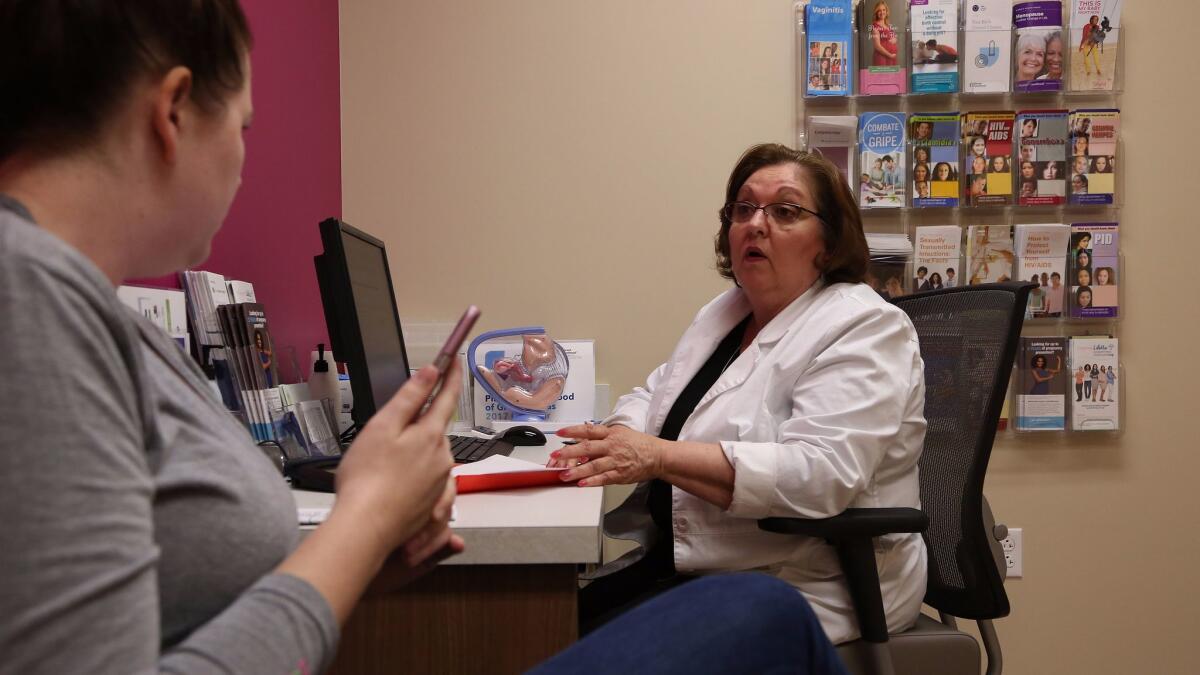Less coverage, more uninsured: Hereâs what the latest Republican healthcare plan could mean for women

Womenâs health advocates have assailed the plans put forward by congressional Republicans to replace the
âBoth bills are nothing short of an all-out attack on womenâs health,â said Janel George, director of federal reproductive rights and health at the National Womenâs Law Center.
Both the
Women with private insurance plans sold to individuals could lose guaranteed maternity coverage in some states. And those on Medicaid wouldnât be able to use their benefits at health centers operated by Planned Parenthood for one year.
Thatâs hardly a surprise, critics say, considering how little input women had in drafting the proposals to replace President Obamaâs signature healthcare legislation. A working group convened by Senate Majority Leader Mitch McConnell included 13 men, but no women.
âIt is an outrage that a bill, which will affect access to healthcare for millions of people, was written in secret with no women senators and will not have a single public hearing,â said Nancy Northup, president of the Center for Reproductive Rights.
Faced with opposition within their own party, Senate majority leaders this week delayed a vote on their plan in order to give themselves more time to win over reluctant Republicans. They hope to have a revised version by Friday, so it can be assessed by the
But as lawmakers head back to their home districts, patient advocacy groups, medical organizations, reproductive rights activists and others are mobilizing for another push to sink the bill.
Here are some of the ways that the legislation could affect women:
Medicaid cuts
Both plans would slash hundreds of billions of dollars from Medicaid over the next decade, leaving states with some unpleasant choices: limit eligibility, offer fewer benefits, reduce the rates paid to healthcare providers or spend more of their own money.
Any cuts would disproportionately affect women, experts argue, because women make up the majority of adults who depend on the program that insures more than 70 million poor Americans.
There are a number of reasons for that. Women are more likely than men to work in low-paying jobs that donât offer insurance. They tend to live longer and have more health needs, particularly during their reproductive years. And they are more likely to be caring for dependent children or elderly family members.
The proposed cuts to Medicaid spending could affect more than the coverage available to women: They could damage womenâs economic security, George argues. Medicaid supports jobs in the healthcare industry that are overwhelmingly filled by women, including nursing home employees and home health aides.
The Republican bills would also give states the option to impose work requirements on Medicaid beneficiaries who are not pregnant, disabled or elderly. Under this provision, women could lose their coverage if they donât return to work 60 days after giving birth.

Elimination of essential benefits
The Republican bills would allow states to do away with requirements that private health plans sold to individuals offer basic benefits such as maternity and newborn care.
States could also scrap mandatory coverage of mental health services, including counseling for depression, which is more prevalent among women than men. Even coverage for prescription drugs, which women use more than men, may no longer be guaranteed.
Proponents argue this would allow greater flexibility to tailor policies to individual needs. But critics say eliminating so-called essential benefits could return the individual market to the days when certain kinds of coverage were hard to find -- and often unaffordable when available.
Before the adoption of Obamacare, just 12% of individual plans included comprehensive coverage for pregnancy costs, which can add up to between $30,000 and $50,000, according to the National Womenâs Law Center.

Restrictions on abortion coverage and providers
It is already illegal to use federal funds to pay for abortion services. The Republican legislation would also prevent women enrolled in Medicaid from using their benefits to pay for contraception, breast and cervical cancer screenings, or any other service at the organizationâs clinics for one year.
Government funding for Planned Parenthood has been a perennial target for conservatives because it is the largest single provider of abortions in the country.
But the organization says the procedure makes up a small portion of the services it provides at its more than 600 health centers, many of which are located in rural or medically underserved communities where there may be few other options for low-income patients. It has labeled the Senate plan âthe worst bill for womenâs health in a generation.â
The legislation would also deny federal tax credits to individuals and small businesses who buy insurance plans that include coverage for abortions. Reproductive health advocates worry this could lead insurance companies to drop abortion coverage from their plans in order to be able to accept customers who need financial help to afford insurance for themselves or their employees.
Twitter: @alexzavis
ALSO
Senate Republicans aim for new healthcare bill by Friday, but skeptics remain
Crunch time for McConnell as Senate GOP is forced to delay vote on healthcare bill
Editorial: The GOP healthcare plan will devastate Los Angeles
Sign up for Essential California
The most important California stories and recommendations in your inbox every morning.
You may occasionally receive promotional content from the Los Angeles Times.








